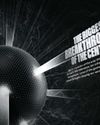
Picture the scene. After a routine blood test, you visit your GP for the results. “It’s all good,” says the doctor reassuringly. “The only problem is that you’re getting older.” Then, with a flourish of the prescription pad, the doctor adds: “But I can help you with that. Take these tablets. They’ll slow the ageing process and help you to stay healthy. Oh, and they might just make you live longer too.”
A drug that extends your life, slows ageing and staves off the ravages of old age, including frailty and disease? It sounds too good to be true, and yet, an increasing weight of evidence suggests not just that these drugs are within reach, but that they may already be here. Some can be found on the shelves at your local health store, while others are drugs for conditions such as diabetes and cancer that are being repurposed. Animal studies have demonstrated their potential, and now clinical trials are beginning to assess if their promise holds true in humans. If it does, those who are middle-aged now could become the first generation to benefit from their use. Imagine an 80-year-old with the biology and ‘get up and go’ of someone 30 years younger. How joyful not to have to act your age!
LIVE BETTER FOR LONGER
This story is from the January 2022 edition of BBC Science Focus.
Start your 7-day Magzter GOLD free trial to access thousands of curated premium stories, and 9,000+ magazines and newspapers.
Already a subscriber ? Sign In
This story is from the January 2022 edition of BBC Science Focus.
Start your 7-day Magzter GOLD free trial to access thousands of curated premium stories, and 9,000+ magazines and newspapers.
Already a subscriber? Sign In

THE WORST IDEAS OF THE 21ST CENTURY
NOT ALL IDEAS CAN BE HITS. ALONGSIDE GROUND-BREAKING INNOVATIONS, 21ST-CENTURY SCIENTISTS HAVE HELMED THEIR SHARE OF WILD TECH FLOPS, DUBIOUS THEORIES AND OVERHYPED BREAKTHROUGHS. HERE ARE THE BIGGEST TO FORGET

10 IDEAS THAT WILL SHAPE YOUR NEXT 25 YEARS
Predicting the future is considered a fool's game. But it's one many of us like to play.

THE BIGGEST BREAKTHROUGHS OF THE CENTURY
We're a quarter of the way into the new century. To mark this milestone, we asked the UK's top minds to highlight some of the game-changing scientific breakthroughs shaping our world since the year 2000

DO THE SCIENCE COGNITIVE SHUFFLE
Trouble sleeping? A lot on your mind? Use this trick and sedate your synapses

WHAT DETERMINES HOW MANY ABS I CAN GET?
Assuming you're a human being, you have exactly the same number of abs as everybody else: two.

HOW CAN I IDENTIFY MY PSYCHOLOGICAL BLIND SPOT?
In the 1950s two American psychologists, Joseph Luft and Harrington Ingham, proposed a way of thinking about psychological blind spots - things you don't know about yourself - that they called the 'Johari Window' (the term is a combination of their first names).

How can I change my personality?
Want to become more confident, extroverted or assertive? Science shows that with a few simple changes, you can unlock your best self

Could your cosmetics be harming your health?
Cosmetic companies are phasing out microplastics and so-called 'forever chemicals' to help protect consumers.

extraterrestrial US Congress is talking about activity again. Is the truth really out there?
Despite several testimonies, the question remains frustratingly unanswered

Map of 100 million human body cells revealed
Over three dozen new studies mark significant milestone towards complete Human Cell Atlas